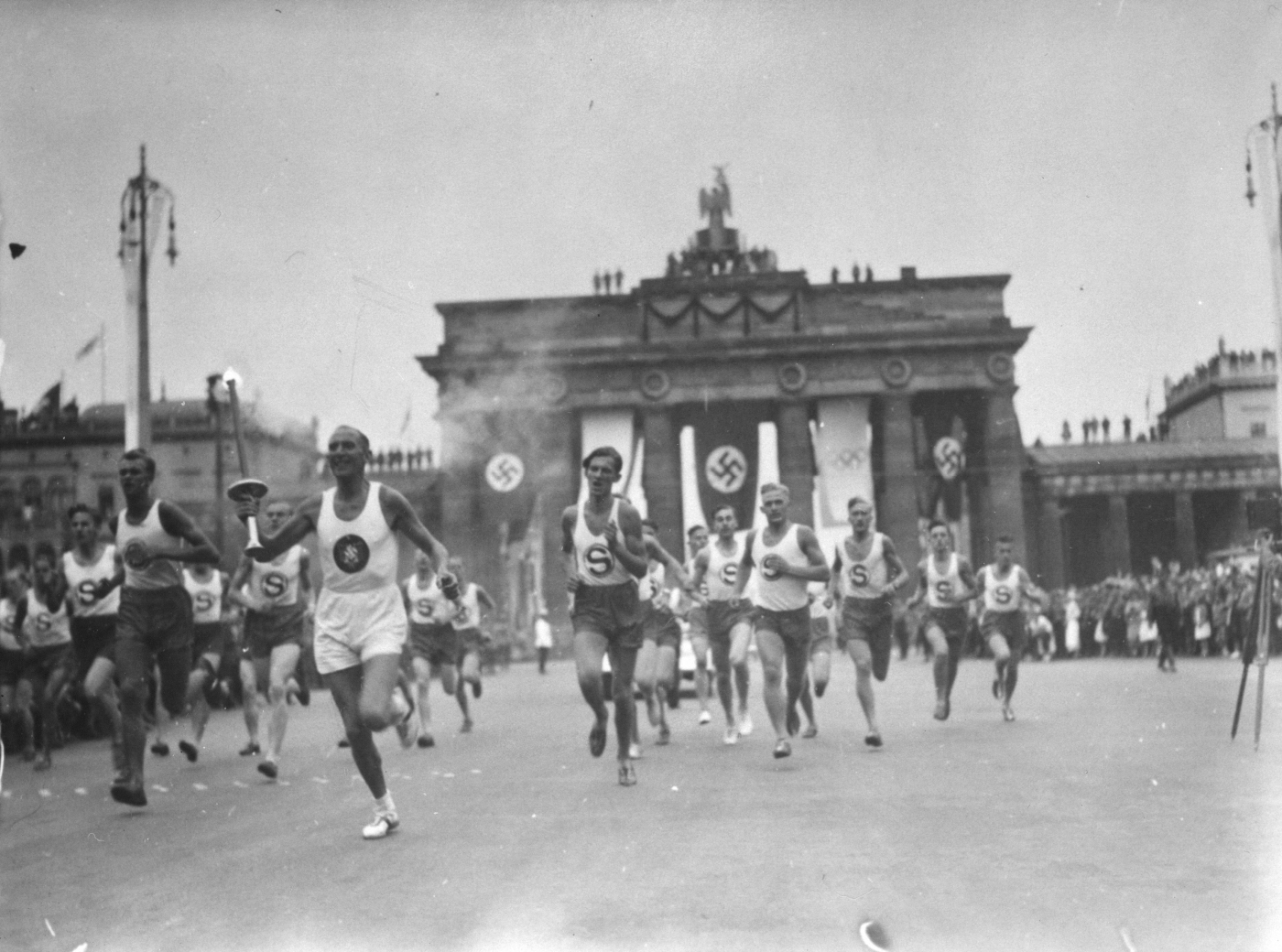
Amateur Athletic Union Says “Yes” to Berlin Olympics
After months of public debate about whether the US should send a team to the "Nazi Olympics," the AAU narrowly voted against a boycott of the Games.
View newspaper articlesIn 1931, the International Olympic Committee awarded the 1936 Summer Olympics to Berlin. Soon after Hitler took power in 1933, observers in the United States and other western democracies questioned the morality of supporting Olympic Games hosted by the Nazi regime.
Responding to reports of the persecution of Jewish athletes in 1933, Avery Brundage, president of the American Olympic Committee (AOC), like many others in the Olympic movement, initially considered moving the Games from Germany. However, after a brief and tightly managed inspection of German sports facilities in 1934, Brundage stated publicly that Jewish athletes were being treated fairly and that the Games should go on as planned.
Judge Jeremiah Mahoney, president of the Amateur Athletic Union (AAU), led efforts to boycott the 1936 Olympics, pointing out that Germany had broken Olympic rules forbidding discrimination based on race and religion. New York mayor Fiorello La Guardia, New York governor Al Smith, and Massachusetts governor James Curley also opposed sending a team to Berlin. The Catholic journal The Commonweal (November 8, 1935) advised boycotting an Olympics that would set the seal of approval on radically anti-Christian Nazi doctrines.
However, a determined Avery Brundage maneuvered the AAU to a close vote in favor of sending an American team to Berlin, and once the AAU of the United States voted for participation in December 1935, other countries fell in line and the wider boycott movement failed.
On August 1, 1936, Hitler opened the XIth Olympiad. The Games were a propaganda success for the Nazi government. Adolf Hitler's Nazi dictatorship camouflaged its racist, militaristic character and exploited the Games to bedazzle many foreign spectators and journalists with an image of a peaceful, tolerant Germany. As post-Games reports were filed, Hitler pressed on with grandiose plans for German expansion. Nazi persecution of Jews resumed.
Learn More about this Historical Event
- Nazi Olympics Berlin 1936 (Online Exhibition)
- The Nazi Olympics Berlin 1936 (Encyclopedia Article)
- The Movement to Boycott the Berlin Olympics of 1936 (Encyclopedia Article)
- The Nazi Olympics: African American Voices and “Jim Crow” America (Encyclopedia Article)
- 1936: Key Dates (Encyclopedia Article)
Bibliography
Bachrach, Susan D. The Nazi Olympics: Berlin 1936. Boston: Little, Brown, 2000.
Committee on Fair Play in Sports. Preserve the Olympic Ideal: A Statement of the Case Against American Participation in the Olympic Games at Berlin. New York: The Committee, 1935.
Large, David Clay. Nazi Games: The Olympics of 1936. New York: W.W. Norton, 2007.
Lipstadt, Deborah E. “The Olympic Games: Germany Triumphant.” In Beyond Belief: The American Press and the Coming of the Holocaust, 1933-1945, pp. 63-85. New York: Free Press, 1986.
Mandell, Richard D. The Nazi Olympics. Urbana: University of Illinois Press, 1987.
Rubien, Frederick W., ed. Report of the American Olympic Committee: Games of the XIth Olympiad, Berlin, Germany, August 1-16, 1936: IVth Olympic Winter Games, Garmisch-Partenkirchen, Germany, February 6-16, 1936. New York: American Olympic Committee, 1936.
Search tips
These dates and keywords are associated with this historical event.